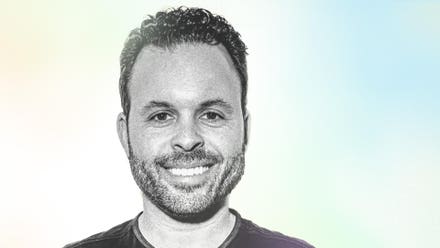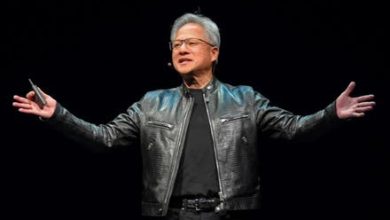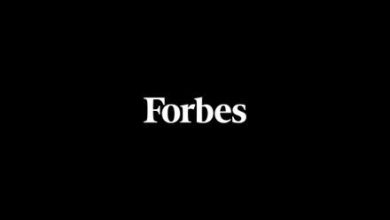How This Small Private Equity Firm Earns 40% Returns Specializing In Obscure Corporate Carve-Outs

Andrew Nikou started OpenGate Capital with $30,000 of his own savings and now manages $1.5 billion.
OPENGATE
Locked inside lumbering industrial and chemical companies are smaller hidden-gem businesses. Andrew Nikou’s OpenGate Capital is getting rich freeing them.
By Hank Tucker, Forbes Staff
Andrew Nikou was a young associate in his 20s in 2002 working in the bullpen at Platinum Equity, the Los Angeles-based private equity firm that has made founder Tom Gores a billionaire, when he got the break that launched his career. He had differentiated himself by developing relationships with executives at the largest businesses in Europe, and when Platinum landed a deal to buy French telecom firm Alcatel’s enterprise service and distribution business in a complex carve-out, it needed more help on the ground to transform the business into a standalone investment.
“Tom came down and said, ‘Hey, who’s focusing on Europe?’ Everyone looked at me. They were like, do you have a girlfriend? Do you have any ties to LA? I said no, and they said, ‘you’re going to Paris,’” recalls Nikou, 47. “It was in those two years that I really understood the art of the deal, and it was the best university you could ever be in.”
After a crash course in underwriting and modeling while helping Platinum establish its first international office, Nikou decided to strike out on his own when he was just 27, starting OpenGate Capital with $30,000 of his savings in 2005. He moved back to Los Angeles, but the firm also has a Paris office led by his partner Julien Lagrèze and has maintained a transatlantic presence since its beginnings.
OpenGate now has $1.5 billion in assets under management and has established itself as a leader in corporate carve-outs in the industrials and chemicals industries. Its most recent completed transaction, in April, was the sale of French waterproofing and building insulation firm SMAC to Compagnie Financière Jousset, making 10 times its $17 million investment, according to a person with knowledge of the deal. OpenGate acquired and formed the company in a carve-out from Colas Group, a French civil engineering business, in 2019 and sold off three manufacturing segments focused on membranes, skylights and resins in 2021 and 2022 to focus on its installation business. That segment improved its Ebitda from breakeven at acquisition to $35 million by the end of the last year.
OpenGate also agreed in June to sell Norwegian silicon carbide producer Fiven, which it acquired in 2019 through a carve-out from 350-year-old industrial and construction conglomerate Saint-Gobain, in a transaction that’s expected to close before the end of the third quarter.
Those transactions are among dozens of carve-outs OpenGate has facilitated since its inception, and its track record shows that it’s reaping the rewards of taking on these complicated deals. OpenGate’s second institutional fund, which closed in 2019 at $585 million, has posted an internal rate of return of 40% annually, according to figures viewed by Forbes. A spokesperson for the firm declined to comment on its performance.
Carve-outs are more challenging than buying and selling standalone businesses because they often don’t have separate audited financial statements and may not come with all of the necessary leadership and staff, because they sometimes have broader roles at their parent companies. Still, established companies are often willing to shed their overlooked “corporate orphans,” Nikou says, at multiples below their fair value, offloading the work needed to revamp them to his team.
“There is a much bigger pot at the end of the rainbow if you know how to do it and if you get it right,” says David Bradley, a banker at Santander who advised Nikou on deals as Jefferies’ former head of industrials investment banking.
Nikou is used to being overlooked, and thinks his background helps him see opportunities where others don’t. His parents immigrated from Iran to Vancouver, where he was born, and later settled in Los Angeles when he was 4 years old. Always the smallest kid in the class, Nikou was bullied relentlessly at school—he now stands at just five feet tall. He credits his father, who had a working-class job in Los Angeles’ Department of Power and Water, for changing his perspective and convincing him that his height didn’t have to be a hindrance.
“I promised myself at a young age that I would never have anyone look down on me,” Nikou says. “I would do pretty much everything I could do to have people look up to me.”
After graduating from USC’s undergraduate Marshall School of Business in 2000, he went to work for a Softbank-backed dotcom business that went bust. He looked in the LA Business Journal for the fastest-growing finance companies in the area, which led him to Platinum. For months, he cold-called every number he could find for the firm, from its HR department to business development and M&A, before his persistence paid off and he was invited into the office. An informal interview over a game of Uno with Platinum principal Roger House, Gores’ brother-in-law, landed him the job.
Nikou was again starting from scratch when he founded OpenGate, bootstrapping deals for its first decade primarily with his staff’s own savings and capital raised from his network. He made his first splash in October 2008, buying TV Guide magazine for a meager sticker price of $1 and assuming its $50 million in debt as the print advertising market was collapsing during the financial crisis. The business was losing money, but Nikou felt there was still value in the recognizable brand and refocused its coverage to make it less of a catalog of all the shows that were on every channel and more of a recommendation outlet to identify the best ones. He also shed some of the company’s unneeded real estate, cutting lease costs. TV Guide was profitable again within two years, and OpenGate sold it in 2015 for three times the cash it put into the business.
“It was under-invested with no clear strategy, but we felt TV Guide had a reason to exist,” says Nikou. “No one had given it the opportunity to right-size the business and create a standalone business.”
Given the headwinds facing media, Nikou pivoted his firm’s focus to industrials, with a specialty in carve-outs where there was less competition. One of OpenGate’s earliest home run investments was Michigan’s Gabriel Ride Control, a manufacturer of shock absorbers and struts for cars, which it bought in a carve-out in 2009. The company was known for developing the first shock absorber in 1907 but had been losing market share and losing money, but OpenGate turned it around, made it profitable again and turned its $1.5 million into $64 million in just three years, a 40x return.
Following those early successes, OpenGate raised its first institutional fund in 2016 and has made more than 40 acquisitions to turn around lower and middle-market businesses. Though Nikou crisscrosses the Atlantic overseeing his staff of 30, he is obsessive about his health. He works out regularly at 5 a.m. with personal trainer Idan Ravin, whose other clients have included NBA superstars like LeBron James and Stephen Curry. Once a competitive breakdancer, Nikou is a believer in the anti-aging movement, tracking biomarkers in an attempt to lower his “biological age,” and Ravin says “he trains like a real professional athlete.”
While OpenGate has distinguished itself by scouring the globe for hidden gem businesses, lower middle market private equity has become a fiercely competitive field. Today there are thousands of firms seeking deals for companies with revenues of up to around $100 million.
“Sometimes you find at the end of deals that not everyone’s friends anymore, and it’s the rare person who can actually negotiate and get to a deal where the memory of the bruises of the game are not at the forefront.” says Brent Gledhill, CEO of investment bank William Blair who advised on OpenGate’s sale of Gabriel Ride and has known him since. “Andrew’s a very confident guy, and he should be, but carries himself with a grace, which is a tricky balance.”



